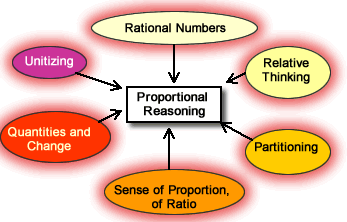
The big policy disagreement in this household the last year has been how to read the "Common Core" standards. This is the first critique that strikes me as having real substance.
Core Meltdown Coming
I’ve stayed mostly out of the Common Core nonsense. The objections are mostly fuss about federal control, teacher training, curriculum mandates, and the constructivist nature of the standards. Yes, mostly. But so what?
Here’s the only important thing you need to know about Common Core standards: they’re ridiculously, impossibly difficult.
I will focus here on math, but I’m an English teacher too, and could write an equivalent screed for that topic.
I’m going to make assertions that, I believe, would be supported by any high school math teacher who works with students outside the top 30%, give or take.
Two to three years is required just to properly understand and apply proportional thinking–ratios and percentages. That’s leaving off the good chunk of the population that probably can’t ever truly understand it in non-concrete situations. Proportional thinking is a monster. That’s after two to three years spent genuinely understanding fraction operations. Then, maybe, they could get around to understanding the first semester of first year algebra–linear equations (slopes, more proportional thinking), isolating variables, systems, exponent laws, radicals—in a year or so.
In other words, we could use K-5 to give kids a good understanding in two things: fractions and integer operations. Put measurement and other nonsense into science (or skip it entirely, but then remember the one subject I don’t teach). Middle school should be devoted to proportional thinking, which will introduce them to variables and simple isolation procedures. Then expand what is currently first semester algebra over a year.
A co-worker was fired for a broach of public morality that our employer thought disregarded our "corporate values," which is to say the values of the institutions aristocracy. In a free nation, with a freedom of association, I respect the rights of my employer to fire my friend, even as I am more in agreement with my friend than the aristocrats who fired him. That right of free association, however, extends to all institutions and liberty does not mean that certain groups are afforded special protection as a political favor to tie up their votes.
ENDA is a bad idea
When Washington first passed employment discrimination laws, Congress saw that anti-black discrimination was so widespread, so destructive and so intractable that the government was compelled to impose a remedy on private business. The question today is whether another intervention is warranted — or will it do more harm than good.
The Employment Non-Discrimination Act (ENDA) passed the Senate on Nov. 7 with supporters promising to end anti-gay discrimination in the workplace. The law may or may not do that — but it will certainly ban legitimate practices by private employers. Federal laws, after all, are not precision-guided weapons. They are blunt and they always inflict collateral damage.
If the Washington Examiner refused to hire a reporter simply because the reporter was gay, that would be wrong. But one can imagine cases in which an employer might justly place on employees conditions that are tied up with sexuality or gender identity.

The problem with the article is the psychological need to bring global warming into the story and emphasize as fact what is not yet understood: the many ways
beyond luminosity that the sun impacts earth's climate.
Strange Doings on the Sun
Something is up with the sun.
Scientists say that solar activity is stranger than in a century or more, with the sun producing barely half the number of sunspots as expected and its magnetic poles oddly out of sync.
The sun generates immense magnetic fields as it spins. Sunspots—often broader in diameter than Earth—mark areas of intense magnetic force that brew disruptive solar storms. These storms may abruptly lash their charged particles across millions of miles of space toward Earth, where they can short-circuit satellites, smother cellular signals or damage electrical systems.
Based on historical records, astronomers say the sun this fall ought to be nearing the explosive climax of its approximate 11-year cycle of activity—the so-called solar maximum. But this peak is "a total punk," said Jonathan Cirtain, who works at the National Aeronautics and Space Administration as project scientist for the Japanese satellite Hinode, which maps solar magnetic fields.
 He speaks of liberty, freedom and helping society’s marginalised. His dedication to civil liberties has brought him a loyal band of followers. Now Cody Wilson, scourge of the campaign to control the proliferation of arms, is coming to London with a new mission: to challenge the global financial system. Mr Wilson, 25 – named by Wired magazine as one of the world’s 15 most dangerous people after he created a gun that can be downloaded and built with a 3D printer – is promoting a crypto-currency that would operate outside of government control.
He speaks of liberty, freedom and helping society’s marginalised. His dedication to civil liberties has brought him a loyal band of followers. Now Cody Wilson, scourge of the campaign to control the proliferation of arms, is coming to London with a new mission: to challenge the global financial system. Mr Wilson, 25 – named by Wired magazine as one of the world’s 15 most dangerous people after he created a gun that can be downloaded and built with a 3D printer – is promoting a crypto-currency that would operate outside of government control.









